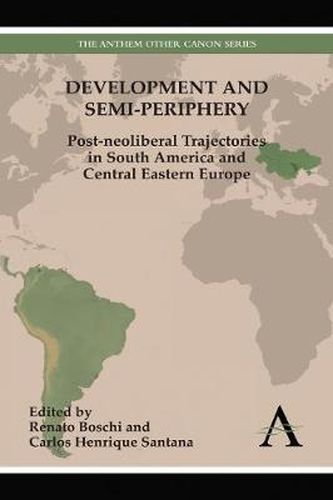Readings Newsletter
Become a Readings Member to make your shopping experience even easier.
Sign in or sign up for free!
You’re not far away from qualifying for FREE standard shipping within Australia
You’ve qualified for FREE standard shipping within Australia
The cart is loading…






‘Development and Semi-periphery’ presents a collection of articles that focus on comparative analysis of development trajectories in the semi-peripheral countries of South America and Central Eastern Europe. As opposed to the transitology studies that were prevalent in the 1990s, and that treated the neoliberal context in these two regions separately, the articles in this book instead offer a new comparative analysis focusing on the consequences of neoliberal reforms and the new actors that deal with their results. The essays discuss the various forms of state that have unfolded in different peripheral countries, their role in the social engineering of economic models and social policies, and the impact of state capacities and ideas on institutional innovation. The volume also compares transformations in political culture, collective identities and contentious politics in both areas.
$9.00 standard shipping within Australia
FREE standard shipping within Australia for orders over $100.00
Express & International shipping calculated at checkout
‘Development and Semi-periphery’ presents a collection of articles that focus on comparative analysis of development trajectories in the semi-peripheral countries of South America and Central Eastern Europe. As opposed to the transitology studies that were prevalent in the 1990s, and that treated the neoliberal context in these two regions separately, the articles in this book instead offer a new comparative analysis focusing on the consequences of neoliberal reforms and the new actors that deal with their results. The essays discuss the various forms of state that have unfolded in different peripheral countries, their role in the social engineering of economic models and social policies, and the impact of state capacities and ideas on institutional innovation. The volume also compares transformations in political culture, collective identities and contentious politics in both areas.